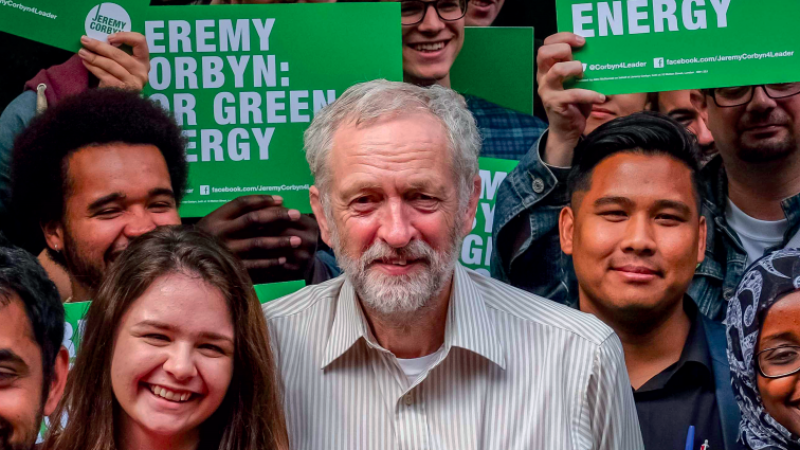
Labour conference is set to be dominated by the campaign pushing for the party to adopt a ‘Green New Deal’, as almost 130 local parties have sent the policy motion for debate at the meeting starting this weekend.
The climate emergency has proved to be the most popular choice as a topic of discussion among members, with 128 Constituency Labour Parties voting to submit Labour for a Green New Deal’s motion – more than Brexit, which was the subject of 90 CLPs’ motions.
If passed, the GND policy proposal would apply pressure on the party to set a zero carbon emissions target of 2030, as well as boost its commitment to creating unionised green jobs and expanding public ownership.
The motion is backed by Momentum and the Communication Workers’ Union, but could face opposition from Labour-affiliated trade unions Unite and GMB.
Adrienne Buller, co-director of Labour for a Green New Deal, said: “Climate breakdown is the defining issue of the twenty-first century, so it’s no surprise that Labour members have put the Green New Deal top of the agenda for this year’s party conference.”
“The upcoming general election will not only be a Brexit election, but a climate election. With a radical and transformative Green New Deal which offers a vision of shared hope and prosperity, Labour will stand ready to win it.”
The second most favoured theme by local parties, Brexit, saw CLPs submit 90 motions – 81 of which called on the Labour Party to endorse Remain in any fresh EU referendum.
According to Another Europe is Possible, which helped draft the most commonly approved motions on Brexit, only a handful did not explicitly back Remain and no motions expressed support for Brexit.
The debate over Brexit at conference will likely centre on whether the party should take a Remain stance now, ahead of an early election, and whether the “credible Leave option” on the ballot paper should be Theresa May’s deal or a new one.
Michael Chessum, national organiser for AEIP, commented: “Labour members are the secret weapon of the party at a general election, and the party ignores them at its peril. Support for an explicit Remain stance is evidently overwhelming.
“If backroom manoeuvres are deployed to stop this being debated on conference floor will be a disaster for morale and for Labour’s prospects. We need a debate and a vote at conference. Only if Labour can get clarity on this part of its policy can fight the election on its domestic agenda.”
There was also a push from campaign group Labour 4 Day Week, which is encouraging the party to support a much-reduced working week. The idea has been floated by John McDonnell in the past.
Labour 4 Day Week is not certain of numbers, but has told LabourList that the motion is being taken forward by CWU and that other unions are likely to vote in favour of it on the conference floor.
The new campaign Labour Against Private Schools, backed by senior MPs including Ed Miliband, has informed LabourList that its conference motion was put forward by five local parties (Battersea CLP, Southport CLP, Bolton North East CLP, Illford South CLP, Liverpool Walton CLP).
Conference motions inform party policy but do not dictate the context of Labour’s next manifesto. Party rules indicate that only proposals that gain a two-thirds majority at conference are included in the party programme.
The rulebook states: “When not in government, the NEC, the shadow cabinet, the parliamentary committee of the Parliamentary Labour Party (‘PLP’), the leaders of the Scottish and Welsh Labour Parties, and the chair and three vice-chairs of the NPF and eight trade union members of the TULO contact group shall decide which items from the party programme shall be included in the manifesto that shall be issued by the NEC prior to every general election.”
There is no guarantee that even policies in the party programme then enter the manifesto. Conference therefore only has the power to apply pressure on the party leadership and trade unions to back policies favoured by members.




More from LabourList
A gory night for Labour
‘SEND reforms are a crucial test of the opportunity mission’
Delivering in Government: your weekly round up of good news Labour stories